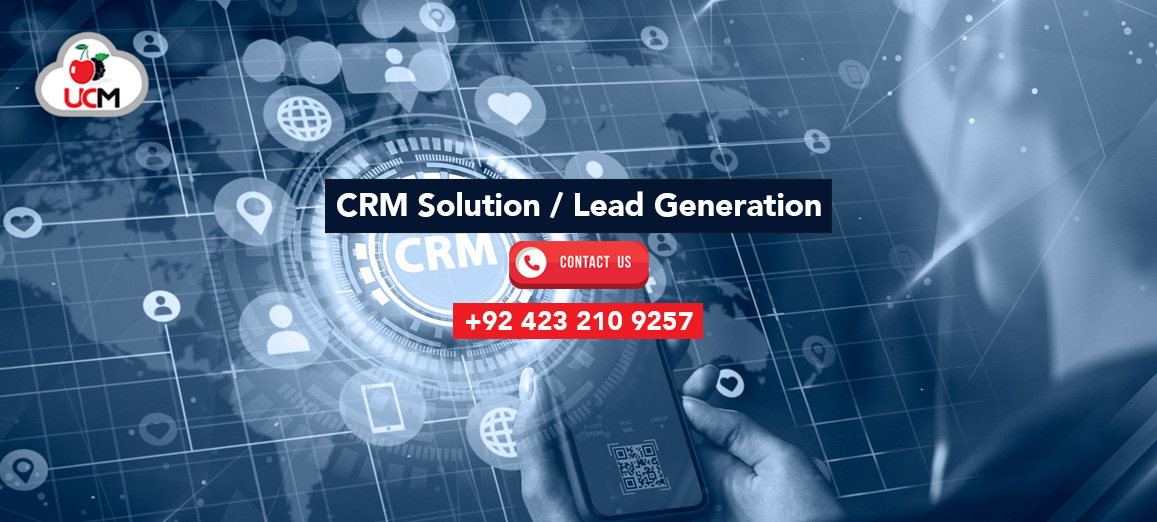Maximise Business Success with Custom CRM Software Development
Significance of Custom CRM Software Development
Customers have always been the most important resource of any business so every customer-oriented activity has been prioritized. Besides encouraging growth and optimizing processes, companies also strive to strengthen stronger customer relationships. Managing customer data across different platforms and spreadsheets can also be challenging and hinder sales. CRM Software Development becomes critical to achieving these goals allowing businesses to centralize their data, especially customer information, and make smart decisions. It also helps them ensure effective management and simplified interactions. Let’s learn how it takes customer interactions to the next level.
What is CRM Software Development?
The process involves creating and implementing a CRM solution to manage interactions with existing and potential clients. Companies can streamline their customer-oriented activities, improve customer service, and increase profitability through customer service, sales, and marketing automation. For instance, automating lead creation and follow-ups saves your team significant time. Additionally, CRM system development allows companies to develop a customized CRM system to meet business requirements for enhanced performance. CRM as a strategic approach serves as a nerve center to get insights, boost customer engagement, process automation, and increase integration capabilities.
Which is Right- A Market Ready CRM or a Custom Solution?
It is important to note that both customer and market-ready CRM solutions contain great tools. Let’s explore the strengths and weaknesses of both solutions.
1. Customised CRM System
Suppose CRM software is built according to your exact business requirements and specifications. This tireless teammate will help you in every move, which is the potential of a Custom CRM Solution.
- A Perfect Match: These solutions are tailored to your unique data needs, integrations, and workflows. You don’t need to invest in unnecessary features or functionalities.
- Scalability: A business needs to evolve with time as it grows or expands. Luckily, a custom CRM solution especially if it is cloud-based expands with you.
- Control & Security: You can adjust your custom solutions and get full control of your customer and business data. Moreover, companies can benefit from advanced security measures.
- Cost: Besides benefits, the customer software also has drawbacks. For instance, companies require significant time, resources, and costs to set up the system. Meanwhile, creating a CRM solution takes longer time than market CRM with updates and ongoing support, which is entirely a business responsibility.
2. Market-Ready CRM System
These are pre-built systems designed to address the needs of a broad range of businesses and offer a quick way to implement and start your CRM system.
- Affordability: Market available solutions offer subscription-based pricing models so they are quite affordable solutions with lower upfront costs.
- Fast Deployment: Due to minimal setup time, companies can easily implement and install market-ready systems.
- Service Provider Support: Many vendors offer market-ready CRM application development services and continuous updates, maintenance, and support.
- Customization & Integration Challenges: Market-ready solutions do not offer customization and have limited integration capabilities. Moreover, your needs may become complex over time but these solutions may not adapt with it.
Which CRM Type Best Suits Your Business Needs?
Knowledge of different CRM types can help you craft unique solutions for your company. Here are some key players in this field commonly available in the market.
- Operational CRM: The main aim of this CRM type is to automate routine tasks related to customer service, sales, and marketing. For instance, it stores and organizes business customer data, such as customer interactions, contact information, and purchase history. Additionally, sales automation helps in sales pipeline management and tracking opportunities. Likewise, companies can launch automated targeted campaigns, segment customer lists, and track performance. Your customer service agents can also efficiently manage ticketing systems and self-service portals with automated solutions. This CRM is ideal to improve efficiency and increase productivity.
- Analytical CRM: It offers more than just managing routine tasks and provides hidden trends and insights in customer data. Analytical CRM can be used as your business analyst, allowing you to identify different customer groups based on purchase history, behavior, and demographics. Companies can also analyze customer lifetime value or total revenue a customer generates while engaging with a business. Additionally, campaign performance analysis enables them to measure their marketing campaign effectiveness, predict future sales, and identify improvement needs. Companies can make smart decisions, optimize sales strategies and run personalized campaigns.
- Collaborative CRM: If you want to utilize the potential of CRM to improve communication and collaboration among different departments, consider investing in collaborative CRM. This communication hub will ensure seamless interactions between sales, marketing, and customer service teams. All your teams can stay on the same page about customer service. Meanwhile, sales representatives and customer agents can address customer concerns by collaborating leading to enhanced customer loyalty and satisfaction.
Important Things to Consider When Developing a CRM App
- Identify Your Needs: Before developing a custom CRM, companies should identify their overreaching objectives for customer relationship management and user needs. Data and integration requirements should be defined to lay the groundwork for custom software that aligns with your business strategies.
- Choose the Right Features: The essential features of a CRM include sales pipeline tracking, contact management, reporting, and automation. Companies can add advanced features like social media integration, self-service portals, and mobile access to enhance the quality of services. Meanwhile, it must be scalable so it can grow and expand with your business needs.
- Design Intuitive Interface: A user-friendly CRM system can increase your CRM value. Meanwhile, customization options allow users to personalize their workflows and dashboards to provide a more efficient service experience. A mobile-friendly CRM can also improve productivity and efficiency.
- Security Concerns: Business and customer data is highly valuable, so develop software that adheres to the data privacy rules. Implementing data backup plans can keep your data safe during disruptions, emergencies, and unforeseen circumstances.
Final Thoughts
Customer relationships are critical to maintaining growth, expansion, and outshining competitors. Customer CRM software development enables businesses to develop stronger relationships and achieve long-lasting success. If you don’t have in-house expertise for custom CRM application development, outsource it to a reputable CRM development company in Lahore such as CherryBerry UCM with industry experience to achieve your objectives.


